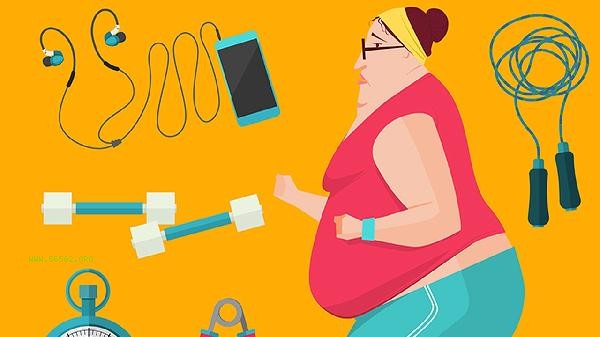The inability to lose weight through dieting may be related to factors such as metabolic adaptation, nutritional imbalance, muscle loss, hormonal imbalances, and incorrect dieting methods. It can be improved by adjusting dietary structure, increasing protein intake, combining strength training, optimizing eating time, managing stress levels, and other methods.

1. Metabolic adaptation:
Long term low calorie intake can lead to a decrease in basal metabolic rate, and the body enters an "energy-saving mode". Even if the food intake is reduced at this time, weight may stagnate. It is recommended to adopt a step-by-step calorie adjustment and schedule 1-2 days per week to restore normal diet and activate metabolic flexibility. intermittent fasting may be more effective.
2. Nutritional imbalance:
Simply controlling calories while ignoring nutrient ratios can affect fat metabolism. Lack of trace elements such as vitamin B and magnesium can hinder energy conversion. Daily intake should ensure that high-quality protein accounts for 20-30%, healthy fat accounts for 30%, and sufficient dietary fiber is consumed. You can choose foods with high nutrient density such as salmon, avocado, quinoa, etc.
3. Muscle loss: During dieting, about 30% of weight loss comes from muscle consumption, and a decrease in muscle mass directly reduces fat burning efficiency. Perform resistance training three times a week, with a focus on training large muscle groups. Compound movements such as squats and hard pulls can better maintain muscles, and timely supplementation of whey protein after exercise can help with muscle synthesis.

4. Hormonal disorders: An increase in ghrelin levels enhances appetite, while a decrease in leptin sensitivity weakens satiety. Ensuring 7-8 hours of high-quality sleep daily can regulate hormone secretion. Appropriately increasing healthy fat intake such as nuts and olive oil, where Omega-3 fatty acids can help improve leptin resistance.
5. Eating habits:
Excessive restriction or a single diet can easily lead to overeating. Adopting the "80/20" principle, 80% choose nutritious meals and 20% can relax appropriately. Pay attention to the eating order: eat vegetables first, then protein, and finally carbohydrates. Chewing slowly can enhance satiety, and chewing 20-30 times per bite is more effective.
Change the simple dieting mode and establish a scientific diet plan. The daily water intake should reach 30 milliliters per kilogram of body weight. Adequate hydration helps to eliminate metabolic waste. Combining aerobic and anaerobic exercise, consuming 2000-3000 calories per week. Record dietary and physical data, and adjust plans in a timely manner. If there is no improvement for 2 months, it is recommended to consult a nutritionist for personalized evaluation to rule out potential health problems such as thyroid dysfunction. Weight loss is a systematic project that requires a combination of nutrition, exercise, and daily routine to achieve lasting results.





Comments (0)
Leave a Comment
No comments yet
Be the first to share your thoughts!